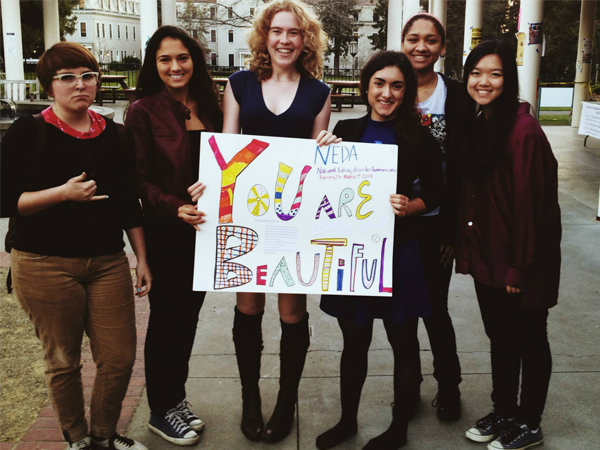
Eating disorders are an illness that has reached an epidemic level in the United States and is continuing to rapidly grow, touching more and more lives everyday. Last week (Sunday, February 23 to Saturday, March 1, 2014) was National Eating Disorder Awareness Week, or NEDA.
The Eating Disorder foundation defines eating disorders as “serious and complex emotional and physical addictions…[eating disorders] include a range of conditions that involve an obsession with food, weight and appearance to the degree that a person’s heath, relationships and daily activities are adversely affected.”
Eating disorders currently have the highest mortality rate of all mental disorders. 20 million people suffer from a clinically significant disorder at some time in their life. While the number of people affected by this illness is incredibly high, it is likely even higher as this statistic does not include the millions of people who suffer from disordered eating that has not been officially diagnosed, or is not clinically significant. It is also very likely that many people suffer from disordered eating that greatly affects their every day life, but are unable, unwilling or do not have the means to seek help.
NEDA currently sorts clinical eating disorders into several categories: Anorexia Nervosa, Bulimia Nervosa, Binge Eating Disorder, and Other Specified Feeding or Eating Disorder. This official division of diagnosable eating disorders unfortunately does not account for many eating issues many people face such as ortherexia, pica, avoidant or restrictive food intake disorder, or rumination disorder.
Despite the fact that this illness affects so many of us, it is still very much a social stigma. Many suffering from disordered eating suffer in silence or avoid seeking help in fear of the judgment or negative reactions they are likely to receive.
The theme of this year’s NEDA awareness week is “I had no idea,” which is capitalizing on how unaware and misinformed society is on what an eating disorder truly is. Many stereotypes surrounding this illness is that the sufferer has no self control, is obsessed with the vanity of losing weight, or “just can’t take care of themselves.” None of these beliefs are true. Eating disorders are real, deadly mental illnesses that for most people have very little to do with food or appearance. Many people who were/are affected cite that they just used food as a tool to manipulate their emotions, soothe negative feelings, or seek control in our out-of-control world.
What can YOU do to help as an ally? Raise awareness: educate people who are misinformed about eating disorders, offer support to those who appear to be suffering, and work to create a more realistic idea of beauty.
If you or someone you know is suffering from an eating disorder, please don’t live in secrecy and shame. Reach out, seek help, speak up. You are not alone.
Take an online screening: https://www.mentalhealthscreening.org/screening/NEDA, and contact your primary physician as soon as possible.
Comprehensive list of hotlines and resources: http://www.something-fishy.org/other/hotlines.php
Also, the Mills Body Positivity Club meets every Monday at 5:15 p.m.
Read Kendall Anderson’s earlier blog post:
BLOG | Body Positivity: The Social Meaning of Makeup.
Anderson is the founder and co-leader of Mills Body Positivity Group and a regular contributor for The Campanil‘s health blog section. Check out the Body Positivity Facebook group: https://www.facebook.com/groups/555588184475032/.
